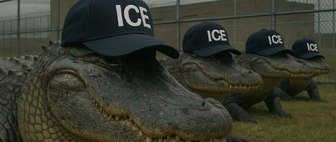A majority of Americans say cloning animals is acceptable in some circumstances, but not to reintroduce extinct species
Last month, scientists in Japan unveiled the carcass of a woolly mammoth found frozen in the Siberian permafrost. The carcass, believed to be tens of thousands of years old, still has hair, muscle tissue and maybe blood, raising the possibility that a new mammoth could be cloned from its cells. Tissue samples have been reportedly sent to South Korea to investigate the possibility of cloning the mammoth.
The latest research from YouGov shows that Americans are willing to accept the animal cloning in some circumstances, but not for bringing extinct species back to life.
A slim majority (51%) of Americans say animal cloning is acceptable in at least some circumstances. Of them, 8% say it is "always acceptable" and 43% say it is "sometimes acceptable". 28%, on the other hand, say that cloning is "never acceptable".
Americans are more likely to reject cloning extinct species than support it, however. 28% of Americans say that is acceptable to clone extinct animals, while 40% say it is not. The 28% who support cloning extinct animals marks a small increase from 2002, when a Fox News/Opinion Dynamics poll asked a similar question. Then, 20% of Americans supported cloning extinct animals.
The results also show a large generational difference in regards to cloning. Americans 18-29 years old are more likely to support the cloning of extinct animals than oppose doing so. Those over 65 years old, on the other hand, are more likely to oppose cloning extinct animals than support doing so.
Scientists have already cloned a variety of animals including sheep, cats, dogs and camels. In 2009, Spanish scientists successfully cloned a Pyrenean ibex, a type of mountain goat which had gone extinct in 2000. The clone only lived seven minutes after birth, however, due to defects in its lungs.
Find the complete results here.
Image courtesy of Getty.








